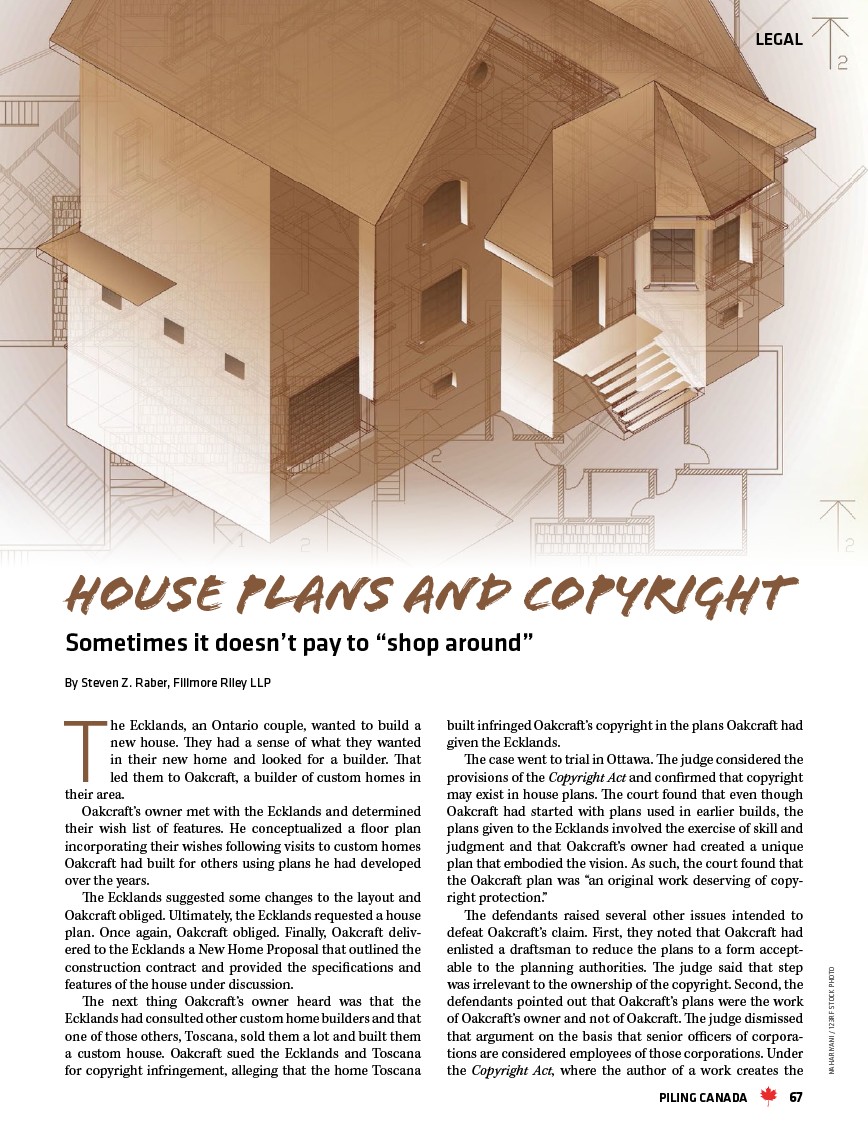
House Plans and Copyright
Sometimes it doesn’t pay to “shop around”
The Ecklands, an Ontario couple, wanted to build a
new house. They had a sense of what they wanted
in their new home and looked for a builder. That
led them to Oakcraft, a builder of custom homes in
their area.
Oakcraft’s owner met with the Ecklands and determined
their wish list of features. He conceptualized a floor plan
incorporating their wishes following visits to custom homes
Oakcraft had built for others using plans he had developed
over the years.
The Ecklands suggested some changes to the layout and
Oakcraft obliged. Ultimately, the Ecklands requested a house
plan. Once again, Oakcraft obliged. Finally, Oakcraft deliv-ered
to the Ecklands a New Home Proposal that outlined the
construction contract and provided the specifications and
features of the house under discussion.
The next thing Oakcraft’s owner heard was that the
Ecklands had consulted other custom home builders and that
one of those others, Toscana, sold them a lot and built them
a custom house. Oakcraft sued the Ecklands and Toscana
for copyright infringement, alleging that the home Toscana
LEGAL
built infringed Oakcraft’s copyright in the plans Oakcraft had
given the Ecklands.
The case went to trial in Ottawa. The judge considered the
provisions of the Copyright Act and confirmed that copyright
may exist in house plans. The court found that even though
Oakcraft had started with plans used in earlier builds, the
plans given to the Ecklands involved the exercise of skill and
judgment and that Oakcraft’s owner had created a unique
plan that embodied the vision. As such, the court found that
the Oakcraft plan was “an original work deserving of copy-right
protection.”
The defendants raised several other issues intended to
defeat Oakcraft’s claim. First, they noted that Oakcraft had
enlisted a draftsman to reduce the plans to a form accept-able
to the planning authorities. The judge said that step
was irrelevant to the ownership of the copyright. Second, the
defendants pointed out that Oakcraft’s plans were the work
of Oakcraft’s owner and not of Oakcraft. The judge dismissed
that argument on the basis that senior officers of corpora-tions
are considered employees of those corporations. Under
the Copyright Act, where the author of a work creates the
By Steven Z. Raber, Fillmore Riley LLP
NAHARIYANI / 123RF STOCK PHOTO
PILING CANADA 67